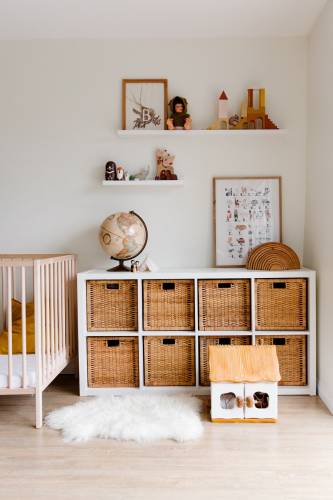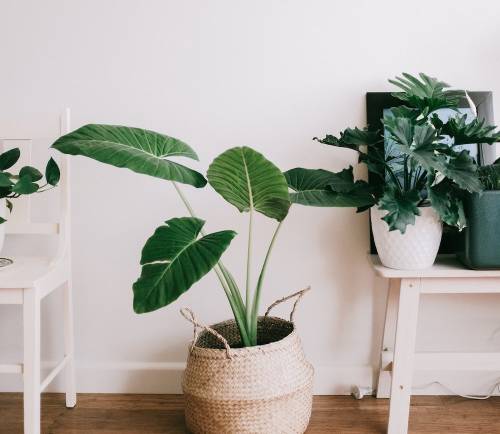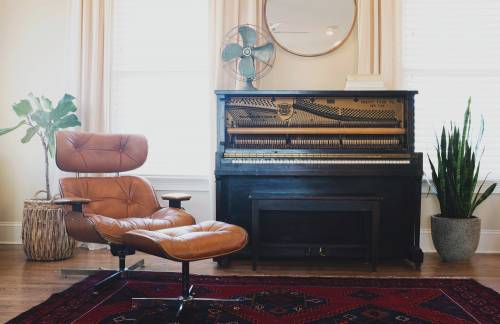In Conversation with Ingrid Starcic
Having just completed the first stage of her training to become a mediator, we sit down with Family Associate Ingrid Starcic to discuss her career journey, why she chose mediation, and how she has adapted her practice during lockdown.
Apart from mediation, Ingrid is a champion of alternative dispute resolution and frequently deals with cases outside of the court arena such as arbitration and private FDRs, and is able to guide clients on its procedural aspects and benefits.
First of all, congratulations on completing your training to become a mediator! You’ve been with Laurus since you were a paralegal, and you qualified with the family team. Tell me a bit about what drew you to family law?
I think everyone assumed at first that I was going to qualify into property law – because I had worked as a fee earning paralegal in property for 6 or 7 years, everyone assumed I would tick off the boxes, do my seats, but I would be a property lawyer.
When I did my second seat in family, I took to it straight away. I had thought about family law when I was at Uni, because I loved it – I did my electives in family law, but I also assumed my career was already mapped out. I got such an adrenaline rush from going to court and I realised that actually, my emotional intelligence helps a lot when dealing with highly emotional clients in extremely stressful circumstances such as divorce.
I think everyone had started to gossip around me, including Jo Wheeler, whose team I would have been in. She actually called me out on it and said she could tell that I absolutely love family law and I was good at it. I wanted to give all three departments a try, but my heart was definitely in family law.
I’m so fortunate that I trained with a firm that gives such a well-rounded training. I feel so privileged, because I have a lot of peers who didn’t have those opportunities, and when they stepped up to become solicitors, they felt very nervous and very unprepared. I didn’t feel that way at all. My training was very hands on – Steve Gasser in the very first week of my seat in family told me ‘You’re in court in Aldershot on Thursday’. I was terrified but I was excited as well, and that’s the level of hands-on experience I’ve had throughout my training. I don’t think everyone necessarily gets that opportunity when they train.
What changes have you seen in the approach to divorce in between the time you qualified first as a lawyer and then as a mediator?
I’ve seen a change in myself, in how I approach cases, because I now have this good background knowledge of how mediation actually works in practice, and what the benefits are. I’ve always been, even prior to my training with the FMA, a champion of ADR, because I’m the type of lawyer who likes to find long-term solutions for clients.
Sometimes court absolutely is appropriate, but I do strongly believe that every person should at least try to resolve matters out of court. There are various types of dispute resolution which may be more suitable than others, and mediation is only one of many options.
Since doing my training, I understand the mediation process a lot more, and I understand that it shouldn’t be just a box ticking exercise before you make an application for a financial remedy, or under the Children Act. It should be a proper assessment of whether mediation is suitable, and to try and find a way to get these parties who are at loggerheads to actually communicate with each other. I’ve seen many examples of success stories and people who have reflected years later – and even in the most acrimonious circumstances – that mediation has worked for them.
You had great feedback from your assessors at the FMA, and I imagine your decision to train with them was encouraged by William, who also sits on their board. How has his experience influenced the way you approach mediation?
He definitely encouraged me to start training, and he recognised that it is something that I would be good at. I thought that I would be good at it, but I’m going to be honest – it’s a lot harder than I thought it would be.
There are misconceptions about mediation, because mediators are not allowed to advise, but they’re allowed to give information. It’s actually difficult to make that transition, from a lawyer to a mediator, when you are tempted to give advice, to strategize in the way you would as a lawyer. I just have to give my clients information, and let the parties make a decision for themselves. It’s actually a lot harder for someone with a legal background to transition into that role, but equally it is very rewarding.

A lot of your mediator training took part during the pandemic – how did you find that, and how have you found practising in general during lockdown?
The majority of my training was on Zoom, and I have a newfound respect for students who have had to study online this whole time.
It was quite intense training as well, full time from 9-5. It was very well organised, but it can still be very tiring staring at a screen and trying to concentrate. Mediation training is very interactive, there are a lot of roleplays, because you have to get into the role of mediator, and you get assessed each time. It was hard doing that online. But I can also see the benefit of it now, because it is entirely possible to conduct mediation online.
It may suit some clients a lot better than face-to-face mediation, because they may not be able to travel all the way to your office, or they may be apprehensive about seeing the other person. It’s something William and I have discussed, and that’s definitely something we can accommodate our clients with.
Do you think there are misconceptions about mediation, either from other lawyers or the general public, that are just untrue?
I’ve definitely championed all forms of dispute resolution, even before I did my mediator training. But I didn’t understand myself the process of mediation fully. And so now that I do, I have so much more respect for it, and definitely I would be happy to champion it every time. My aim is to be a hybrid lawyer – so yes, I can be your litigator when you need me to, and I can be the mediator. And I genuinely believe in that approach.
I don’t think all lawyers necessarily realise that mediators can invite the parties lawyers to join them. It’s a no brainer – why wouldn’t you try and sit down and come to a solution together, instead of endless correspondence with each other, costing your clients money. Why not all go into one room, and that way the mediator can facilitate that communication, and equally the parties can have that comfort of having their legal advisors near them.
I think more lawyers need to be aware of it, and more junior lawyers like me need to be aware of the process and the benefits of mediation, because ultimately, it’s our generation that will either drive it forward or not.
You can read more about Ingrid’s work and credentials here. Ingrid and the team can be reached at the contact details below..







